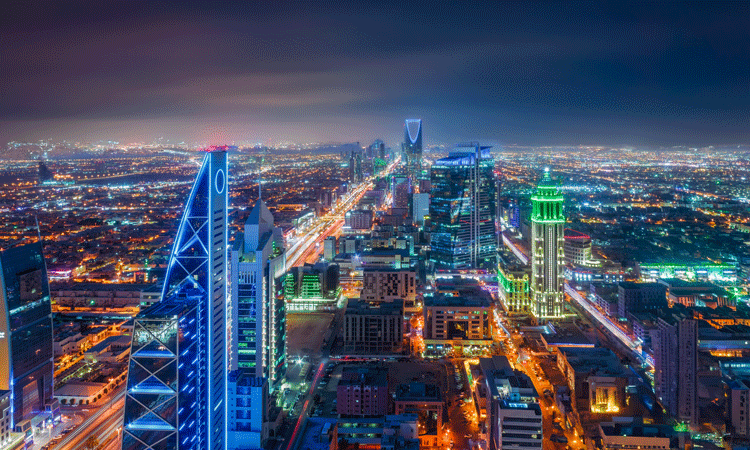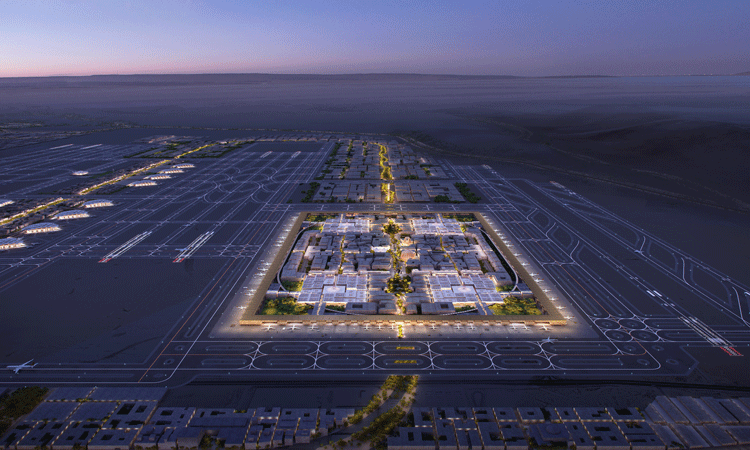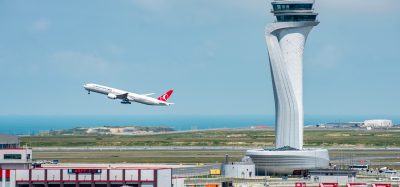Building Saudi “Hafawah” into King Salman International Airport
- Like
- Digg
- Del
- Tumblr
- VKontakte
- Buffer
- Love This
- Odnoklassniki
- Meneame
- Blogger
- Amazon
- Yahoo Mail
- Gmail
- AOL
- Newsvine
- HackerNews
- Evernote
- MySpace
- Mail.ru
- Viadeo
- Line
- Comments
- Yummly
- SMS
- Viber
- Telegram
- Subscribe
- Skype
- Facebook Messenger
- Kakao
- LiveJournal
- Yammer
- Edgar
- Fintel
- Mix
- Instapaper
- Copy Link
Posted: 28 March 2025 | Mammen Tharakan | No comments yet
At Routes 2024 in Bahrain, International Airport Review Editor, Holly Miles, caught up with Mammen Tharakan, Vice President, Investment & Partnerships at King Salman International Airport Development Company.
Do you prefer to watch or read the interview? You can do both!
Can you share the vision of King Salman International Airport and how you believe it will transform the region’s economic and logistics landscape?
King Salman International Airport will be a destination – a capital city airport for a major, rapidly expanding economy, and an integral part of Riyadh’s commercial, social and cultural landscape. It will be a gateway connecting Saudi Arabia to the region and the global community – a world-class aviation hub that benefits travellers, business and community.
The airport will be critical to the regional logistics network. By significantly enhancing the infrastructure for both passenger and cargo transport, we’re setting the stage for increasing international trade – attracting investment, supporting the aviation sector and diversifying Saudi’s economy.
Then there’s tourism, Saudi Arabia successfully welcomed over 100 million tourists last year. Riyadh’s strategic location and amazing cultural and entertainment offering will establish KSIA as a preferred destination for international travellers. This will increase direct tourism and improve the visibility and accessibility of the region to a global audience.
It was mentioned in the media that KSIA will be a destination, what does that mean?
We want to make everyone who passes through our gates feel looked after and welcomed with the Saudi sense of generosity (Hafawah).
Our focus is on crafting a distinctive and memorable destination for not only passengers, but also Riyadh people and its visitors. Every decision we make is driven by a desire to enhance their experiences of coming to, and being at, the airport. We want to make everyone who passes through our gates feel looked after and welcomed with the Saudi sense of generosity (Hafawah). At every point in the design, building and operation of the airport we are asking ourselves can this be done in a different, better or more human-centric way – from check-in halls to security screening streams, retail and departure infrastructure. The aim is for us to build a destination that our visitors enjoy and stay for longer times with joy.
What role does KSIA play regionally and internationally in connecting the east and west, and how it will encourage the private sector to invest more and contribute to the Saudi economy?
Saudi Arabia’s strategic location at the crossroads of Europe, Asia and Africa makes King Salman Airport a critical hub for air traffic between the east and the west. By enhancing its capacity, the airport will become a key transit point for passengers and cargo moving between major international markets, reducing travel time and logistical challenges.
The development of the airport will offer significant opportunities for private sector participation through PPP models. This includes investments in infrastructure, airport services, retail and logistics.
The increased connectivity will bolster non‑oil sectors such as tourism, trade and services, contributing to the diversification of Saudi Arabia’s economy.
As the airport expands, it will create a wide range of jobs in construction, aviation, logistics and service industries, boosting local employment.
The increased connectivity will bolster non‑oil sectors such as tourism, trade and services, contributing to the diversification of Saudi Arabia’s economy.
The airport will enhance the Kingdom’s logistics sector by facilitating faster, more efficient trade routes, making Saudi Arabia a key player in global supply chains.
The new airport will be Riyadh Air’s operational hub in Saudi Arabia, could you tell me the extent of the partnership and how this arrangement will mutually benefit both companies, and especially in creating a super hub?
Our alliance with Riyadh Air goes beyond mere co‑operation; it’s a strategic partnership. It is an alliance poised to reshape the aviation sector in Saudi Arabia and across the Middle East. This partnership is about envisioning a future where Riyadh becomes a pivotal player in the global economy, driven by innovation, shared ambition and connectivity.
The partnership with Riyadh Air means we have a world-class airline at the centre of our operations. The airline’s modern fleet and ambitious route expansion plans will drive passenger traffic through our terminals, enhancing Riyadh’s position on the global aviation map.
For Riyadh Air, the choice of King Salman International Airport as its base offers top-tier facilities and a prime location at the nexus of major global air routes. This airport will offer an unparalleled passenger experience and smooth transfers to an expansive and continuously growing network of international destinations. A world-class airline deserves a word-class airport.


With a new airport in development and a new airline taking off, how are you leveraging a partnership free from legacy concerns?
We and Riyadh Air are starting with identical objectives and an understanding of what each of us wants to achieve, so there’s a deep synergy between us.
There is something to be said about a clean slate. It gives us greater flexibility and opportunity to make the right decisions and to be bold. We and Riyadh Air are starting with identical objectives and an understanding of what each of us wants to achieve, so there’s a deep synergy between us.
More than simply seeking superficial differences that set us apart from competitors, we are intent on challenging the conventional models of airport operation and have the desire to fundamentally redefine air travel, both on the ground and in the air.
We want to remove all the legacy and look at the passenger journey, from pre-airport to flight, in a new way. Anchored around human centricity, we want to put passengers securely and safely on planes, but we also want to change the experience and the way people interact with the airport – making it a stress-free, pleasurable experience, and a culturally rewarding part of their journey. These efforts are toward building a legacy that’s serves not only the passengers but also the national carriers.
When will KSIA open?
We are just about to start the construction phase and will then set the timeline for the operation and the launch of the airport. As the phases are completed there will a progressive and significant increase of the capacity of the airport leading up to the Expo2030 when we will be ready to handle the visitors to this extremely important event.


c: KSIADC
Mammen Tharakan, is the Vice President, Investment and Partnerships for the King Salman International Airport, owned by the Public Investment Fund in Riyadh, Saudi Arabia. In this role, Mammen oversees the strengthening of airline partnerships, cargo & logistics strategy development, and the commercial & public spaces portfolio under the Vision 2030 objectives. Working closely with industry and private sector, he is leading investment and business attraction opportunities elevating Riyadh’s connectivity with the world. With a leadership career spanning over 20 years in various sectors including airlines, airports, entertainment and technology, Mammen firmly believes that collaboration and innovation are fundamental drivers of success. Recognising the crucial role that aviation provides in connecting the world and developing economic opportunities, he is committed to advancing the industry.
Issue
Related topics
Air freight and cargo, Airport construction and design, Airport development, Capacity, Cargo, Economy, Passenger experience and seamless travel, Retail, Tourism



















